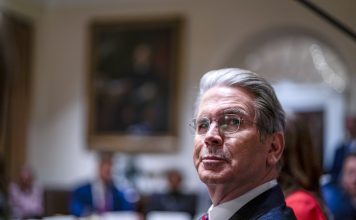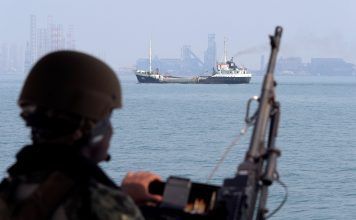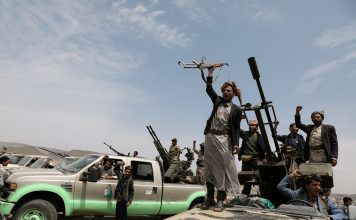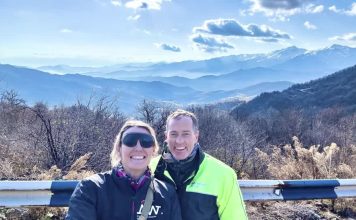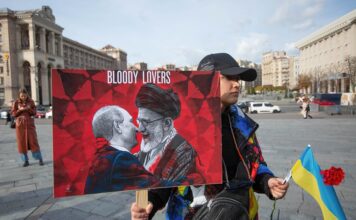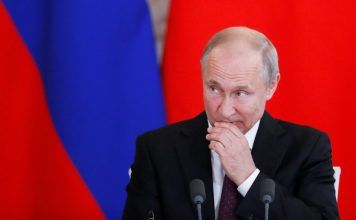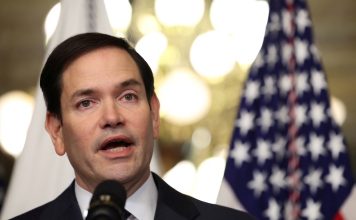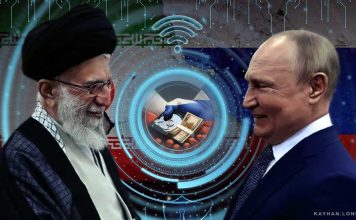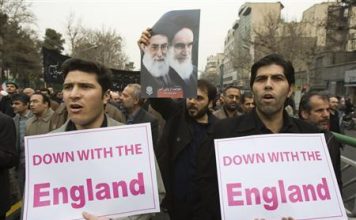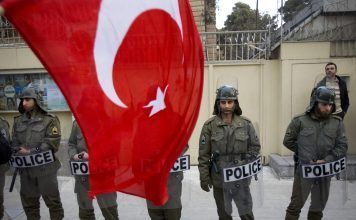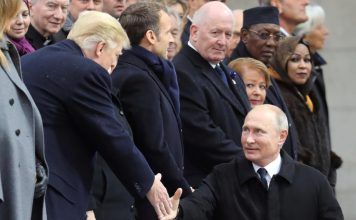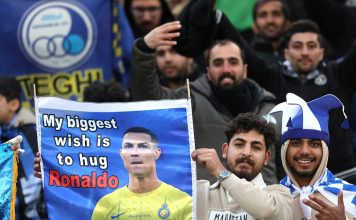Hojatoleslam Mohammad Ghafourian Khoshbayan was born in 1982 in the holy city of Mashhad, the capital of the northeastern province of Khorasan Razavi. He is the maternal grandson of Ayatollah Seyyed Mohammad Reza Modarresi-Hosseini, a teacher of Iran’s Supreme Leader Ayatollah Ali Khamenei. On his mother’s side, Khoshbayan is also a descendant of Ayatollah Seyyed Abdolali Sabzevari.
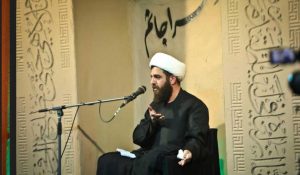
Khoshbayan completed his bachelor’s degree in accounting at the Islamic Azad University, Sabzevar Branch, in 2001. He then pursued further religious education by enrolling in the Qom Seminary. Since 2008, he has attended courses led by Ayatollah Hossein Vahid Khorasani which focus on subjects outside traditional Sharia law. These courses, known as Darse-Kharej, emphasize argumentative presentations of lessons without relying on a specific text.
During this period of his education, Khoshbayan also taught and lectured. Around 2009, he aligned himself with opposition clerics against the Islamic Republic.
Kayhan Life recently interviewed Khoshbayan.
Mr. Khoshbayan, what events led you to align yourself with the opposition against the Islamic Republic?
My dissent against this regime stems not from personal gain, but from a profound moral obligation and a commitment to human dignity. Remaining silent in the face of such injustices is a betrayal of our shared humanity. Every individual deserves fundamental rights, including freedom and justice; no government should infringe upon these rights.
One of the primary reasons for my opposition to this regime stems from my observations of pervasive corruption within religious institutions. The connection between religious and governmental authorities, along with their exploitation of the nation’s resources, has intensified not only within Iran but also on a regional scale.
This corruption manifests not just in financial terms but also morally; rather than embodying the principles of religion, these institutions have transformed into hubs of corruption and moral decay. I have witnessed firsthand how this corruption has become entrenched in religious organizations and how these resources are misappropriated.
When did this opposition begin?
My conflict with this regime began years before my departure from Iran. My ties to Marja taqlids (sources of emulation), mainly because of my lineage as a descendant of Seyyed Abdolali Sabzevari, provided me with access to comprehensive details regarding corruption at the highest echelons of government. This corruption extended beyond economic matters and infiltrated moral and spiritual dimensions.
I shared the information I gathered with friends and colleagues abroad to expose the hidden truths behind the Islamic Republic’s facade. Engaging in this struggle was perilous and posed significant threats to me and my family; however, I remained steadfast in my commitment because I viewed this fight as a moral and social obligation.
Did these threats ultimately compel you to exit the country?
Yes, because of my significant roles in lectures and teaching sessions, I was repeatedly summoned and detained by the Special Clerical Court in Qom. During these instances, I endured both mental and physical torture on multiple occasions. In my most recent arrest, after being released on a substantial bail amount, I received information from various sources showing that a severe sentence awaited me, potentially including the death penalty. As a result, I felt compelled to leave Iran.
You referred to extensive corruption within the highest echelons of government; could you elaborate on this topic?
I have observed extensive moral and financial corruption within religious institutions and connections driven by material gain and power between religious leaders and government officials. This profound corruption has permeated Iranian society and the surrounding countries in the region.
The leaders of the Islamic Republic, along with the Islamic Revolutionary Guards Corps (IRGC), are involved in military interventions and political oppression in nations such as Iraq, Syria, and Lebanon to enhance their influence.
In the mid-2000s, I received a report regarding the murder of Mohammad Hassan Ebrahimi. He was reportedly sent to Guyana as a representative but became involved in smuggling activities and was ultimately killed during a confrontation with local gangs. My disclosures compelled the media in the Islamic Republic to change their coverage of the incident.
Could you provide more details regarding the corruption within religious institutions in the Islamic Republic, specifically focusing on Al-Mustafa Society and the Islamic Development Organization?
The Al-Mustafa Society, established through the merger of the organization overseeing seminaries and theological schools abroad with the Global Center of Islamic Sciences, has evolved into a vehicle for promoting the agenda of the Islamic Republic.
The substantial funding allocated to this institution lacks transparency; a significant portion of its resources comes from undisclosed sources. The Al-Mustafa Society has extended its influence beyond Iranian borders, reaching various countries, and is implicated in the financial and propaganda corruption associated with the Islamic Republic.
The Islamic Development Organization was among the largest importers of cigarettes in Iran during the 2000s. These organizations operate without accountability, mainly because of the backing they receive from leadership.
The leadership office also operates similar centers that address financial and ethical corruption issues. For instance, the management of the all-female Sisters Seminaries has sent some seminarians to the Khomeini Center in Qom in the past to engage in Sigheh (temporary marriage) with foreign male seminarians. These actions represent only a fraction of the harsh realities occurring within religious institutions under the governance of the Islamic Republic.
What principles and values do you uphold in the realm of human rights?
My principles are grounded in the concept of human dignity. Every individual, irrespective of their nationality, religion, gender, or beliefs, must live with freedom and respect. I advocate for freedom of speech and actively support it, mainly because this liberty is significantly curtailed in Iran, where any dissent against the government is met with harsh repression.
A fundamental tenet that I uphold is the necessity of separating religion from politics. Religion should not serve as a justification for oppression or repression. Governance should be founded on justice and human rights, while religious beliefs should remain a personal matter for individuals.
You referred to Iranians’ historical values, such as justice and freedom; how are these two principles regarded within the Islamic Republic system?
The people of Iran have historically upheld values, such as justice and freedom. Cyrus the Great (circa 600 BC-530 BC) is credited with issuing the first charter of human rights, which emphasized religious freedom and respect for diverse cultures. This document, recognized as one of the earliest human rights texts, reflects the enduring commitment of the Iranian people to uphold human dignity.
Before establishing the Islamic Republic, Iran was advancing towards development and modernization during the Pahlavi period (1925-1979). This era saw significant initiatives aimed at building modern infrastructure, fostering economic growth, and enhancing the living standards of its citizens.
Noteworthy advancements occurred in education, healthcare, and industrial infrastructure. Key accomplishments from this time included creating prestigious universities, expanding healthcare services, and improving the educational system.
However, following the establishment of the Islamic Republic, there was a noticeable shift away from focusing on Iran’s national and historical identity. Repressive policies supplanted the previous progress made during the Pahlavi era. Despite these challenges, today’s Iranian populace is more determined than ever to reclaim their freedom and human dignity.
What are you engaged in now?
To sustain my livelihood, I have established a business that enables me to balance my daily responsibilities alongside my social, political, and human rights endeavors. Despite the many challenges I encounter on this journey, I remain resolute in opposing the tyranny of the Islamic Republic.
One of the most significant burdens I bear is the separation from my cherished child; however, this distance has never diminished my resolve to persist in this struggle. As a political and human rights advocate, I investigate human rights abuses in Iran, aiming to amplify the voices of those denied their fundamental rights to global audiences and international platforms.
What is your perspective on Iran’s future and the Islamic Republic’s fate?
The regime of the Islamic Republic is nearing the end of its dishonorable existence, and the prospects for freedom among the Iranian people are brighter and more attainable than ever before. Only through the solidarity of all Iranians committed to their nation’s territorial integrity and future change can be realized.
Following the collapse of this regime, the citizens of Iran will choose their form of government and take charge of their nation’s future by raising the Lion and Sun flag (the emblem on the Iranian flag prior to the 1979 Islamic Revolution.)

